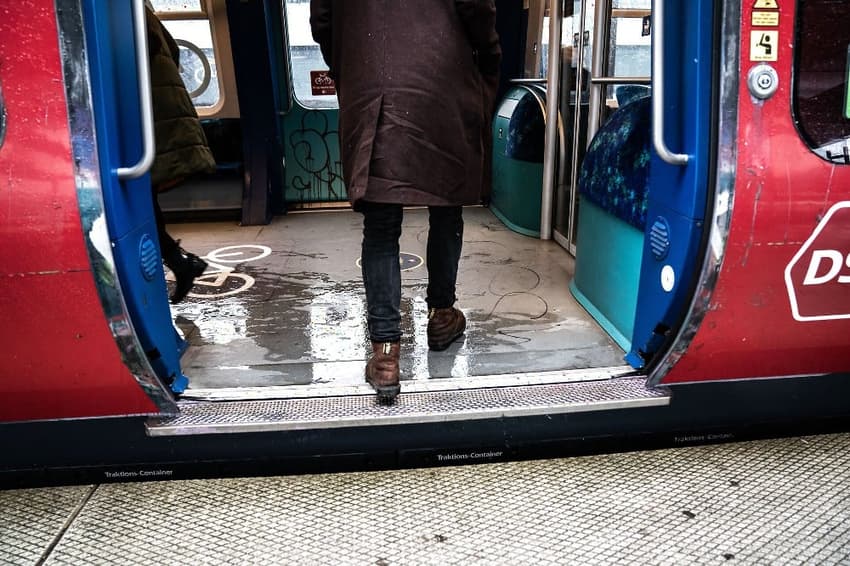Today in Denmark: A roundup of the news on Monday

Refunds to commuters whose trains run late, young people faring better than expected during lockdowns, and nowhere to put Denmark's dead are among the top news stories in Denmark on Monday.
Are you eligible for a refund from DSB for late trains?
DSB, the Danish State Railways company, shelled out 24.3 million kroner last year to compensate commuters for late trains, the company tells newspaper Berlingske.
It's part of their "commuter travel time guarantee" programme, which refunds commuters directly to their NEMkonto (government-designated bank account) when their trains to work run late a certain percentage of the time.
Eligibility requirements are available in Danish here.
READ MORE: What you need to know about new public transport prices in Denmark
Study: certain mental health conditions didn't surge among young people during lockdowns
New research from the University of Copenhagen suggests Covid lockdowns didn't increase overall levels of certain mental health conditions in young people, as psychiatrists and policy makers had feared.
A mental health survey asked about 25,000 Danish 18-year-olds about key metrics of their behavior, including symptoms of self-harm, eating disorders, and suicidal thoughts. It found no population-level changes comparing before, during and after lockdowns.
"Some groups have gotten worse during the lockdown, while others have benefitted from it" perhaps due to decreased social and academic pressure," Stine Danielsen, a PhD student at the University of Copenhagen, told broadcaster DR. "So overall we end up with no change."
However, representatives for SIND: National Association for Mental Health emphasize that lockdowns did exacerbate mental health conditions for many who struggled before the pandemic.
"Suddenly there were no longer any communities they could be a part of," Mia Kristina Hansen, chairwoman at SIND, told DR. "They might have been isolated already, and they just became even more so when everything shut down."
READ MORE: Why does it take so long in Denmark to see a psychologist or therapist?
Danish undertakers overloaded, lack space for 'occupied' coffins
The State Serum Institute, Denmark's infectious disease agency, noted a "significant" increase in deaths in this winter, which experts put down to the 'triple epidemic' of Covid, the flu, and RSV. Now, Danish undertakers say occupied coffins are piling up with nowhere to store them.
DR reports a nationwide overload of bodies waiting to be interred. Undertakers are forced to drive from chapel to chapel searching for a refrigerated space to store the body until the funeral.
Currently, undertakers are able to use unheated chapels as a stop-gap measure. "But when we get to the other side of 10 degrees, we'll need refrigeration, and then we'll have problems," undertaker Claus Markvardsen told DR. "We may well have some unfortunate experiences."
Comments
See Also
Are you eligible for a refund from DSB for late trains?
DSB, the Danish State Railways company, shelled out 24.3 million kroner last year to compensate commuters for late trains, the company tells newspaper Berlingske.
It's part of their "commuter travel time guarantee" programme, which refunds commuters directly to their NEMkonto (government-designated bank account) when their trains to work run late a certain percentage of the time.
Eligibility requirements are available in Danish here.
READ MORE: What you need to know about new public transport prices in Denmark
Study: certain mental health conditions didn't surge among young people during lockdowns
New research from the University of Copenhagen suggests Covid lockdowns didn't increase overall levels of certain mental health conditions in young people, as psychiatrists and policy makers had feared.
A mental health survey asked about 25,000 Danish 18-year-olds about key metrics of their behavior, including symptoms of self-harm, eating disorders, and suicidal thoughts. It found no population-level changes comparing before, during and after lockdowns.
"Some groups have gotten worse during the lockdown, while others have benefitted from it" perhaps due to decreased social and academic pressure," Stine Danielsen, a PhD student at the University of Copenhagen, told broadcaster DR. "So overall we end up with no change."
However, representatives for SIND: National Association for Mental Health emphasize that lockdowns did exacerbate mental health conditions for many who struggled before the pandemic.
"Suddenly there were no longer any communities they could be a part of," Mia Kristina Hansen, chairwoman at SIND, told DR. "They might have been isolated already, and they just became even more so when everything shut down."
READ MORE: Why does it take so long in Denmark to see a psychologist or therapist?
Danish undertakers overloaded, lack space for 'occupied' coffins
The State Serum Institute, Denmark's infectious disease agency, noted a "significant" increase in deaths in this winter, which experts put down to the 'triple epidemic' of Covid, the flu, and RSV. Now, Danish undertakers say occupied coffins are piling up with nowhere to store them.
DR reports a nationwide overload of bodies waiting to be interred. Undertakers are forced to drive from chapel to chapel searching for a refrigerated space to store the body until the funeral.
Currently, undertakers are able to use unheated chapels as a stop-gap measure. "But when we get to the other side of 10 degrees, we'll need refrigeration, and then we'll have problems," undertaker Claus Markvardsen told DR. "We may well have some unfortunate experiences."
Join the conversation in our comments section below. Share your own views and experience and if you have a question or suggestion for our journalists then email us at [email protected].
Please keep comments civil, constructive and on topic – and make sure to read our terms of use before getting involved.
Please log in here to leave a comment.